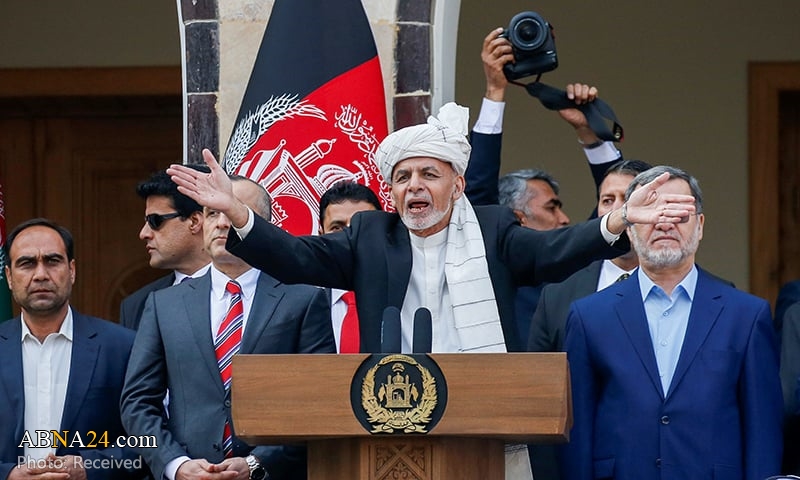AhlulBayt News Agency (ABNA): While in the recent days and especially since the new round of peace Kabul-Taliban negotiations started reports emerged to talk about an “interim administration” with the Taliban participation, President Ashraf Ghani and a couple of other officials in the government reacted and rejected that such an agreement was reached.
Media reports say, the government negotiating team insists that a ceasefire should be at the center of the negotiations, whereas the Taliban negotiators press for an agreement on a government first, followed by ceasefire dialogue.
During his trip to Nangarhar on January 7, Ashraf said that the negotiating team of the government concentrates on leadership transition through elections. Criticizing the Taliban approach to the peace process, the president said: “Taliban need to understand that Today’s Afghanistan is not that of the 1990s.”
Vice-President Amrullah Saleh also made it clear to the Taliban that gaining power only through the election mechanism is the condition of the government in the talks.
The advisor to the President, Vahid Omar, in a tweet said: “After twenty years of systematization, the issue of establishing an interim government is like fully demolishing your concrete house, which needs to be repaired and consolidated, and setting up a plastic tent on the ground.”
These critical stances from Kabul are coming out while informed sources said that interim government idea was very likely the main reason Ghani did not meet the US special representative to Afghanistan Zalmay Khalilzad during his Kabul visit on January 6.
The agenda of the new round of talks is a roadmap to post-war Afghanistan, ceasefire, and Taliban and other armed groups’ disarmament. But a breakthrough would be gained and the Taliban would agree to a ceasefire only when advances are made on the new political structure whose main hallmarks would be the change of the current system to Islamic Emirate rule and dissolution of the current government. The militant group recently argued that Ghani’s sticking to power would hamper a peaceful settlement to the long-time Afghanistan war.
According to a preliminary agreement between the US and the Taliban, reached in February 2020, the Taliban called for prisoner release, elimination of its name from the UN terror blacklist, full withdrawal of the foreign forces from Afghanistan by May 2021, and facilitation of its return to power. The last condition was met as an accord was reached for an 18-month interim administration followed by general elections.
The insurgent group labels political system in Afghanistan “illegitimate” and calls the serving government a “puppet” to the foreign powers. This vision has so far kept it from accepting several suggestions by Kabul for taking ministry and provincial council posts or reaching an alternative deal that would see the release of more of its prisoners in exchange for the extension of the Ghani government.
On the opposite side, the government with noticeable pessimism looks at the behind-the-scenes agreement between the US and Taliban and says the group’s demands serve to undo the two-decade political and social achievements of the people after the 2001 Bonn conference and shatter the international support to the country.
As Donald Trump hands over power, Ghani, who tries to complete his full term to 2024, now takes tougher stances against the Taliban in the negotiations, hoping to influence the new American administration’s Afghanistan strategy.
But recent remarks by Biden’s national security advisor Jack Sullivan, who implied that the incoming administration supports the Trump-period process and agreement, may show that Khalilzad's comments are not made without consultations with the new administration officials. At least for the next year, the new White House leaders would maintain Taliban incorporation in the power and stay committed to cutting military forces in the war-weary country.
Meanwhile, the Afghan people will be the biggest loser of the actions of the three sides and will keep looking at the future with worries.
The US, which made unilateral agreements with the Taliban behind the scenes, imposed imperative negotiations in Qatar on Kabul and thinks more about its largely destabilizing interests in Afghanistan than civil achievements of Afghanistan people.
As another actor, the Ghani administration puts the interests of the Pashtuns over national interests in the talks with the Taliban. Ghani has created a circle of Pashtun ministers and advisors around himself. One of his closest men Hanif Atmar, his national security adviser, is a Pashtun— something making such minorities as Hazaras and Tajiks extremely concerned about an inter-Pashtun deal, while they are already afraid of Taliban’s emiratism.
/129

